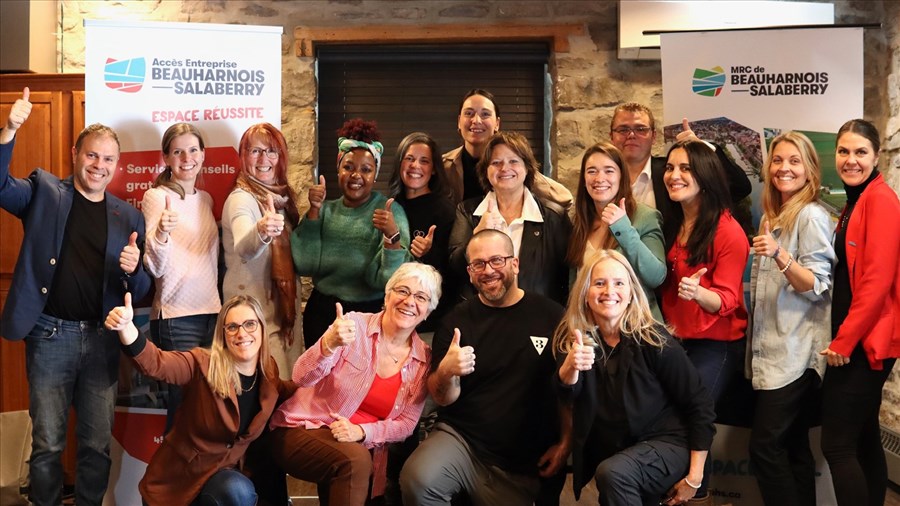Vaudreuil-Dorion councillor responds
Jasmine Sharma reaction - Toxic climate in the municipal world
The announcement by the minister of Affaires municipales et de l'Habitation, Andrée Laforest, to offer psychological support and training to municipal councillors at the start of their term of office, has prompted a mixed reaction from a coalition of municipal councillors from across Quebec who recently formed to call for concrete action to improve the climate and governance of municipal politics. Vaudreuil-Dorion city councillor Jasmine Sharma recounts her experience.
In the summer of 2023, Vaudreuil-Dorion city councillor Jasmine Sharma set in motion a process whose initial objective was to propose amendments to her municipality's Code of Ethics and Professional Conduct for elected officials, in order to include a code of civility. Anxious to document her work properly, she decided to set up a working group comprising elected officials, former elected officials and researchers.
She explains: "Since the beginning of my consultation process, I have been surprised and saddened to note that elected officials across Quebec are suffering in silence, that people who have committed themselves to politics in order to move their communities forward are being intimidated or threatened by colleagues, and that they are victims of repeated incivilities. That was all it took for us to decide to stick together and work together to demand concrete and rapid change."
After the shockwave created by the resignation of Gatineau's mayor last week and this morning's announcement, which coincides with Canada's national Pink Shirt/anti-bullying day, the members of the group were left wanting more, as the accumulation of events over the last few months demonstrates that municipal democracy is fragile.
For the coalition, what the Minister is proposing is a first step, but it's far from enough. If we focus solely on services to help elected officials get through difficult events, such as the toxic climate, we won't solve the problem at source, and we certainly won't convince the next generation to take an interest in politics.
What's more, the people at the source of the toxic climate must be brought to change their behavior if we really want to improve the climate. The coalition is calling for concrete, rapid changes in the public arena. Some of the tools and mechanisms would be fairly simple to put in place.
According to Ms. Sharma, the group's meetings have quickly turned into a place of confession for resource-strapped elected officials. So, in the fall of 2023, she sent a letter with some thirty signatures to the Québec Minister of Affaires municipales et Habitation, Andrée Laforest, to paint a picture of the situation and to call for a project on civility in the municipal world. The response to this letter was terse, with the Minister showing no interest in a meeting.
A letter was also sent this week to the chair of the UMQ's new committee on municipal democracy, requesting that interested members of the working group and the coalition be invited to come and talk about their experiences and share concrete solutions.
The coalition puts forward seven possible solutions to improve municipal democracy:
1- Incorporate a code of conduct into the Code of Ethics and Professional Conduct for Municipalities (a simple definition of "respect" and "civility" is not enough); ...
2- Offer mandatory and ongoing training on respect, civility and inclusive communication, and eliminate financial and legislative barriers to accessing it, especially in small and medium-sized municipalities (those with fewer than 20,000 inhabitants have no support and research funds for elected officials). Training at the start of a mandate is not enough;
3- Recognize incivility and harassment issues using the INSPQ and CNESST approach (currently, the legal interpretation of the code of ethics and professional conduct is applied, without taking into account the victim's experience or psychosocial or organizational factors);
4- Remove legislative barriers to access to mediation services offered by the Commission municipale du Québec (CMQ) (currently, access to these services requires a resolution of the municipal council);
5- Provide for conflict management mechanisms and gradation of sanctions by an independent person, before going to the CMQ with a complaint;
6- Create an ombudsman position for elected officials to assist them in problem situations related to ethics and professional conduct, including respect and civility issues;
7- Update governance practices to promote diversity, equity and inclusion of elected council members in municipal democracy.
For the coalition, now is not the time to analyze the situation, since numerous studies have been carried out, including one requested by the Ministère des Affaires municipales et de l'Habitation in 2022! It's time to implement concrete, rapid changes to ensure the survival of municipal democracy.
The coalition plans to take further action in the coming weeks, including a visit to the Quebec National Assembly to demand a commitment from the government to make the necessary changes.
Several other municipal councillors commented on Minister Laforest's announcement, including Alice Despins of Quebec City, Pascale Albernhe-Lahaie of Trois-Rivières, Valérie Léveillé of Chertsey, Jacynthe Pinse of Sainte-Thérèse, Isabel Mattioli of Saint-Eustache, Darling Tremblay of La Minerve and Sylvain Pillenière of Lotbinière.
Also read:


-87x71.jpg)




